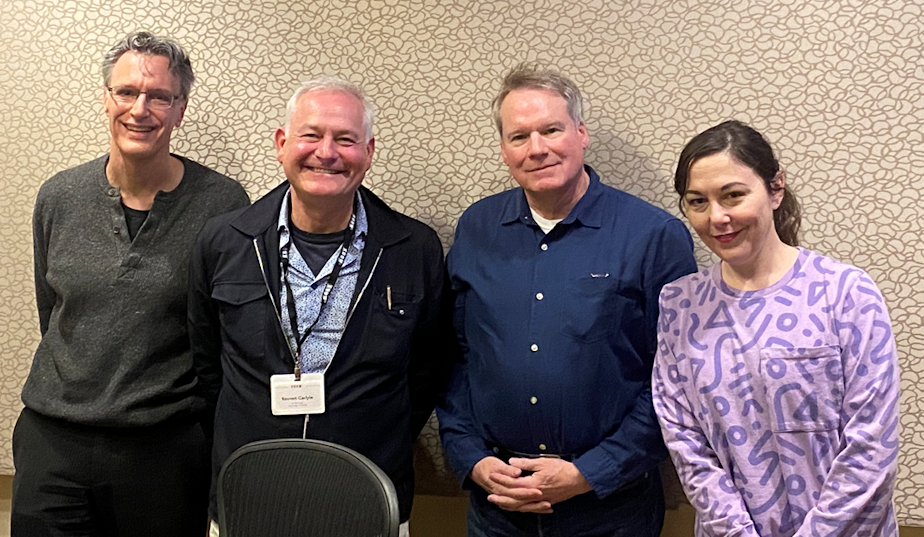Week in Review: the legislative session, a plan for growth, and a judge disqualified

Bill Radke discusses the week’s news with PubliCola’s Erica Barnett, Washington Policy Center’s Paul Guppy, and Earth Finance’s Reuven Carlyle.
Washington’s Democratic majority Legislature passed three Republican-backed voter initiatives into law this session. These were petitions that got enough voter signatures. The Legislature either had to put them on the statewide ballot this fall or make them law. One of them would roll back restrictions on police car chases. Police can once again chase a vehicle if they have a reasonable suspicion that any crime has been committed, not just a violent crime, and that the suspect poses a safety threat. Another initiative prohibits the state income tax that's already illegal and it forbids local governments to impose income taxes. The third Republican-backed state initiative that will take effect this summer is the so-called “Parents Bill of Rights” that would allow parents to “examine” instruction materials, obtain student records, and opt their kids out of classroom activities. Why did that happen?
In other legislative news, lawmakers did not raise the cap on property taxes from 1% to 3% a year. They did not put a cap on annual rent increases. They made it a requirement for many large cities to allow denser housing near transit hubs. They also passed the so-called “Clean Energy Bill.” It does not include a ban on natural gas hookups for new homes and small business buildings. It's not what Gov. Inslee had hoped for. Will he sign it?
This week, the mayor updated the growth plan, which is how the city decides where to allow more homes and taller buildings. The main points are currently most Seattle lots can have three homes: a main house with a so-called mother-in-law apartment, and a little backyard cottage. The new rules allow between four and six homes, depending on whether they're affordable and how close you are to transit. And the city would create two dozen new neighborhood centers near transit and commercial areas where you could see six-story apartments. Will this motivate developers to build enough homes?
The Seattle City Attorney's office has barred one judge from hearing new criminal cases. It accuses Municipal Court Judge Pooja Vaddadi of routinely overruling other judges' findings of probable cause and claims she refused to issue written no-contact orders in domestic violence cases and has made erroneous evidentiary rulings for unjustified reasons. Removing Vaddadi from the rotation could impact the workloads of other judges. Does city law give City Attorney Ann Davison that right?





